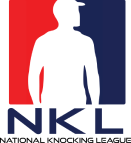Speaker 1:
D2Con is right around the corner with Mastermind Day, January 16th in Salt Lake City, Utah with Tim Grover, Author of Relentless and Michael Jordan’s coach.
You also have a marquee speaker in former NBA all-star, January 17th and 18th at the salt palace in Salt Lake City, Utah. I’ll tell you of Ed Mylett, Coach Burt, Tim Grover, and many more famous speakers and workshops on how to improve your leadership, sales and recruiting. Register today, D2D con.com for D2Dcon. New users, we have a DVD you after-party Friday night. Don’t miss out. Pre-register at D2DCon.
Speaker 2: (00:43)
All right everybody, this is Sam Taggart, your host with the D2D podcast and we are live here in Salt Lake City, Utah with Sam Knickerbocker. Coolest last name. Also a great golfer and a cool cat. So he speaks is the public speaker who speaks all over the country. Um, and he’s done a lot with the financial necessarily like planning out people’s finances, right? And, and education and teaching people how to be better stewards over their finances. Right. That’s kind of been your main niche, but also host of few of your legacy podcast. You’ve been featured on Bradley’s podcast and other podcasts, so congratulations. That’s exciting. Thank you. And, uh, also speaking at door to door con, which is, which is a big deal. Yeah, I’m excited for it. It’s been that, yeah, I’ve been actually, when I first came out and saw door to door, I was like, I need to speak there.
Speaker 3: (01:32)
But I didn’t know Sam. I didn’t know who to talk to. But then I met Sam at NSA meeting. I was like, okay, cornering him and we’re getting up. We’re going to do this, we’re going to do this. So no, he was persistent, made it happen. So super excited and honored. So I think that, you know, there’s a lot that you can bring to our audience. One, because you have a door to door background, you know what I mean? It wasn’t like you’re coming in as this finance guy that is just some guy that studied numbers. It’s like, no, you get what it is to grind, you know, you kind of got your start there. It sounds like. Right? Yeah. So that’s actually one of the main reasons that I shifted. I mean there’s, there’s a lot of reasons, but it comes down to kind of my mission in life is to help save marriages, save marriages from divorce, anxiety, depression, suicide, um, domestic violence, things like that.
Speaker 3: (02:22)
And when I got into the research of psychology, cause that’s where I was originally going while I was doing door to door, um, I got back to kind of why somebody would struck, like, why are the horses happening? Why are these symptoms happening? And it came down to the research across the board is separated off of socioeconomic status. So basically how well does somebody understand money will in large part dictate or there’s a high correlation to all these social issues. I was like, that’s crazy. One, I’m not going to go to school for 13 years to be a owned by an institution and have to publish things. That’s not my mentality. I like being an entrepreneur. I love door to door sales. Um, but two, it wasn’t where I wanted to have the most impact. Right. At the same time as I was going through all the research side of that, I was doing door to door sales and for my first two years, um, much like probably act the average door to door person.
Speaker 3: (03:17)
Even if they get the training, even if their, their company says, Hey, don’t, don’t go blow all your money. I mean you’re 18 years old, you been living under your mom’s roof and you go in and make 30 to a hundred thousand dollars in three months. Like you, you’re not, unfortunately, you’re not equipped to deal with that type of money. Most people, occasionally you are if you’re really lucky, but most people were not mentally, emotionally equipped to handle that much inflow of cash. And so they blow it all before Christmas. They’re living on debt until they can go sell again. Yeah. And that is the cycle. So today we’re going to be jamming on how to break that cycle, how to kind of retrain your brain, create some emotional attachments in the positive to one help your marriage. I love that mission of like, you know, it’s weird, I got married and I already was doing door to door, so I already had money and it was like we never had to go through this like financial, you know, mishap, you know, we’ve gotten up or down.
Speaker 3: (04:19)
But like, you know, like most bridges when they kind of first get married, they’re sitting there and trying to live on food stamps. I mean I have friends that are like, you know, still living in their parents’ basement and it’s like, it’s real and it’s, and I’m sure there’s a financial battle that always happens. I’ve been blessed to not to do it that a ton, but you know, I love that mission of like, how do we support the family and you know, one of these key, you know, comparison or are key indicators of like divorce is probably finance. So I mean that’s, yeah, that’s cool. That’s, that’s awesome. And then in our world, one of the biggest problems in our spaces, guys make too much money and then broke still. It’s like I was, Jim and I were coming off for bro, like this weekend and you’re talking about ex NBA players and how like to kill a meal, he’s almost ready to have $1 billion or chemo.
Speaker 3: (05:09)
Elijah one was broke, like they had been given an extra year of the NBA just to give him 1 million bucks. Like, you know what I mean? And he’s like, wait, this guy was one of the greatest basketball players ever and had no money. And it’s like, is that that we have that polarity in our industry, so I want to jam on that. I think that that’s a really interesting topic because it’s like we have every opportunities the MBA has in some sense. You know what I mean? Yet there’s a chemo ones in this industry and they’re Shaquille O’Neal’s, which is just really cool. Yeah, and it’s interesting from a, like you have to look at it from everybody’s perspective, especially like going into summer sales. I again, I did it for five years, for four and a half, five years. And you as your, as a sales rep, you don’t really want to be thinking about money while you’re, I said like you can’t be about anything else other than closing.
Speaker 3: (05:59)
Like just performing your best. Totally dialed in, locked in. And when I got married to my wife, actually she had never seen me in summer sales mode cause we got married in between summers and I was like I think you may not like me. Honestly. Like when I get that dialed into something, I’m laser focused. I’m laser-focused my conversations, they’re very short Curt. I’m not re like, I don’t think I’m rude but like I’m direct. Like when I’m in focus mode I don’t have a lot of time to talk about friendly stuff. I’m focused on reading and focused on bettering myself and staying dialed in with my mentality and nothing out. It’s going to suck if you have emotional crap cause like I, I’m not equipped to do. Yeah, I am so, and as a, as a, as an owner, you want that for your guys.
Speaker 3: (06:45)
You want to prepare them. And that way on the same hand though, as they’re making all this money, if they don’t understand, if they didn’t have a lot of the pregame work and set up with some really good goals and identity of what they were going to do with the money before they ever got it and went into the summer with intention, then that’s when the breakdown starts to happen is so, so you don’t want to necessarily encourage us as an owner, you don’t want to encourage your people to be focusing on money too much, but you need to have a system there so that they can handle that money as it comes in. I love that. So let’s, let’s break it down. Let’s get into the nuts and bolts of that. Like let’s say you’re a guy that makes, let’s kind of break these into categories like the typical sales rep that’s gonna make, you know, 20 to a hundred thousand in that range.
Speaker 3: (07:34)
Right? Um, and so he goes out and has really good summer, a really good year or whatever. Um, what are some tips and advice you’d kind of give him that maybe he’s not thinking of? Yeah. So if they’re in that range, generally it’s their first or second year and they haven’t really identified who they are as a summer sales rep. They’re maybe getting comfortable with the idea that that’s what they’re going to do for income for the next few years and they’re uncertain of the, the longterm of it. And so if one thing that’s really important is before you go out, first identify who you want to be, what’s your core character and really take, uh, there’s a lot of tests where you can do values, like what are my highest values? And start on the basis of what are your top three values? Is the integrity for me, it’s um, candor, like I really value candor to the point where I’m maybe rude sometimes, but I would rather somebody know exactly how I’m feeling.
Speaker 3: (08:27)
Then have to guess. Um, gratitude is, is number two. So candor and gratitude are my two highest values above anything else. And so understanding that that guides everything that I do, um, in, in a summer sales thing. So understanding that sets you up for your financial conversation of, okay, well how much money do I really need throughout the summer or on a monthly basis? I love, I honestly down a little bit because so many people get attacked, especially guys that make money, we get attacked by it. Hey, you should invest in this. Let me sell you this product. Let me let you know what I mean. And then try to tell you, I mean, I’ve probably had 50 financial planner to reach out, like not even kidding. And um, they always try to pinpoint me into like their path, but they fail the say, what’s your identity?
Speaker 3: (09:21)
Like what, what do you value? Because you know, for me it really, if they would have asked that question, I would have been like, Hey dude, like you’re probably out of your fit or go find me a good fit that actually values, you know what I mean? In my path, my plan that I want to map out and use to align with that value. So I think that a lot of people that are like, I actually appreciate you saying that first because most people are going to say here’s the tips and tricks, right? But that internal identity, getting clear on that. I love that. For me, I’ve just seen this from a, from a psychological perspective, you see it with anybody who’s mega successful, right? I’m putting air quotes on that because define success, right? But if we’re going to say just off of the dollar amount, people who are wildly have a lot of money, there’s a ton of people who are completely unfulfilled.
Speaker 3: (10:05)
Like they just aren’t happy. And it’s because they either built their wealth on something that they didn’t value or their whole careers is turned into something they don’t value. Even it may have started out in alignment, but quickly got out of alignment when they started chasing the wealth or the dollar amount rather than sit remaining in the line. And I have people all the time say, Hey Sam, you should switch companies for who you work with financially. Um, because you get paid so much more somewhere else. I’m like, that’s not really my intention. My intention is being somewhere where I can help anybody. If you got $10 to start working with, I can help you start building the identity and the mindset of, of somebody who’s wealthy. And that’s where I, in my opinion, a lot of, uh, of the financial grooves you’ll hear on the radio or on podcasts and whatnot.
Speaker 3: (10:51)
They, they aren’t so focused on like the do’s and don’ts and they don’t ever come back to the values of it. And so they’re losing people and actually programming people to focus on the wrong things rather than what do I want to become. And let’s start there. And money’s not the end goal, but money is a natural, uh, it’s a natural reaction to me adding my value where I value it, love the nugget. So, okay, so we figured out identity. What’s next? Um, so, so with that identity, I would say, okay, well how much do you really need to survive on a monthly basis? So, uh, my brother, he, uh, he was doing HPAC sales and he one year, so my third year in summer sales I made about 60 grand and he had made 80 to 90 grand that year doing selling HPAC things and by Christmas he was broke living paycheck to paycheck still and I had like 30, 40 in the bank and it came down to um, we’ve been trained because we’ve never had a lot of money.
Speaker 3: (11:59)
We’ve been trained to live off of a uh, just spend everything we have type budget rather than a um, dollar cost budget. Like okay what does my actual lifestyle cost? And so I have been kicked courage people would go from, okay I spending everything I have to, what does your life actually need to cost? Everything beyond that goes into a savings account or somewhere and you’re only spending, you’re only keeping what you need to survive that month or to live the life you want to live in that bank account. Everything else is going into storage, especially in summer sales cause it’s up and down. Yeah. You never know when you’re going to have a down week or downloads or down season or sure done. You know what I mean? And you have, you know that you’re only out there for maybe six months if your die hard, right?
Speaker 3: (12:45)
You’re not going for six months, but you know you have six months off and if you’re not preparing and have the foresight to actually, what is it going to cost me to live those six months, then you’re, you’re setting yourself up for failure and whether that’s on the owner of the company, not adequately training their guys. I don’t know where that falls necessarily. I know that my, the companies, I worked for it, they did their best. I was just really stubborn. I’m a stubborn person so they told me, Hey, you should plan for this. Yeah, whatever. I’m going to go buy blah blah blah and it’s don’t do that. You have to follow my don’t follow my example. You have to do, do you see in this industry guys getting kind of, almost like they’re spending future money in the sense of, Oh dude, I’m on track to make, or Oh, if I only sold X more, I could go buy my boat, or if I, you know what I mean?
Speaker 3: (13:35)
Like they sure they almost live in the sense of one, they’re aspiring to be that top guy or two, they’re living on future deals or three, they’re just trying to look cool because they’re in sales so they feel like that could put off this right. This kind of image. And I think a lot of that comes from where most of the summer sales industry comes from. And it’s not a slam on, um, people who are like lower middle class. But that’s like the people that I’ve seen come into summer sales and really kill it. They’re not people who came from super wealthy backgrounds. They came from backgrounds where they didn’t have anything. They were told a story of money doesn’t grow on trees. They were told the story. We don’t, we can’t afford that. And so when they finally can afford whatever they want, they think, Oh yeah, I want this nice car.
Speaker 3: (14:19)
I want this cause that’s going to show success. When you go talk to ultra successful people, people who are 100 million more network and probably in the billions, even then what you find is they don’t need a high class lifestyle. What they, what you really want is the knowledge that you can buy whenever you want. You don’t actually want a nice car most of the time you do for like a few months and they’re like, okay, I’m gonna drive it. Just like I drive any car and it costs me a ton of gas. This sucks. Right. What you want is to know that you can have that if you wanted it. Yeah. And where people, they need that with a mindset shift and understanding. They don’t actually want it. They want to know that they can have it if they, if they chose and understanding that can separate the people who are out blowing their money and the people who are able to save and, and then buy those toys with the interest.
Speaker 3: (15:08)
Or the growth on their money rather than with our seed money. So let’s talk about budgets and discipline. Um, but just if it’s something I’ve felt I’ve, I, you know, I think the problem with sales guys is most of them probably have an ADE and then probably aren’t meticulous and planning and putting numbers on spreadsheets and actually like counting pennies. So, I mean, talk to me about budgeting. I mean, what does an easy or good way to actually create a budget and stick to a budget? Because when you say, here’s my life costs, a lot of people don’t even know what that is. I mean, they’re just spending just leave this year. So it has to become a priority, right? And it’s not a priority until it has to be a priority. I would say most of the time. But don’t wait till it hits rock bottom.
Speaker 3: (15:54)
Oh, I better start budgeting. So for me, I don’t, I have a different definition of the word budget than other people have. And most times when you’re talking about budgeting, it’s almost like talking about a diet when you’re talking about food, right? People are going to go on this dive, everyone go on this budget and then they’re going to relapse and then it’s going to be worse for them than they ever originally were at. Right? They’re going to, when they relapse because they just can’t handle not spending money, then they’re going to go add a credit card and they’re going to blow some something crazy because they were just so restricted before. So I don’t view of a budget as kind of a team. You’re spending Ivy, and this is why it starts with the values because I view a budget more of a tracking system.
Speaker 3: (16:31)
So I think mint that the app mint is the best tracking system out there at for for a few reasons, but primarily because of the psychology behind it. They have, uh, in their, in their budget, right? dot com it’s free. You can pay for it if you want to advertisements about whatever. Right? But, uh, when, when you still have money to spend in that category, it’s green. When you’re getting close to the end, it turns yellow and when you’re overspent, it turns red. We’ve all been trained to go off of green, yellow, red in every other area of our life. It’s not like a, uh, a new concept. And so we’re dealing with our psychology. We’re using our previous, um, indoctrination and call it, uh, to our advantage. But also it allows you to track it once you know how far ahead or behind you are, but then it comes down to, once you understand where your money’s going, then it goes back to the values.
Speaker 3: (17:25)
Because money is nothing more than a monetary exchange of value and what every time you spend money, you’re getting a non-monetary thing in return. And so then you can ask yourself, okay, do I really value what I’m getting in return for it, for this money or not? But until you actually know where your money’s at, you can’t even make a value judgment. Yeah. Because might under or over value whatever you’re buying based on your situation. You know what I mean? It’s like, well, I could buy a, I just bought a leaf blower, for example. You know what I mean? There’s all sorts of different types of leaf blowers and I’m sitting there like how much do I want to spend on a leaf blower? Like where am I at financially? Like the nice one and it’s going to last or I just want to, I just need to something them for this fall that I can blow those leaves right there.
Speaker 3: (18:15)
You know what I mean? And it, and it’s interesting when you look at it from that perspective, what you just said of Hey, where am I at financially? Where am I not in my budget to work and I value at least blowers costs and return on that cost. You know what I mean? Maybe I don’t need the leaf blower the end of the day. It’s like that’s just not in the budget for the month and I can actually go rate the thing. You know what I mean? Like at Rick I have a rake, you know what I mean? Yeah, exactly. So that’s what I would say in that that’s in a cost. Bates cost based budget is what I call cost based budget. But then what the next step from that is once you understand the cost based budget system and you can track, okay, what percentage of my average income is it taking to live my life?
Speaker 3: (19:01)
And the what I’ve seen from the kind of the ultra wealthy people that I’ve talked to, people who are worth billions of dollars, they are, they don’t live their life on a cost based budget. They don’t think about, okay, well this isn’t how much my life is going to cost. They switch into a percentage based budget. And that was basically where, how much of what percentage of your income are you spending on your life? And kind of the, the, the coveted number is less than 1%. Right? If you’re spending less than 1% on, uh, of income on your life, it’s not because you’re living in crappy life. It’s because your income is so big that you’re living less than 1%. Right now, my wife and I, we live on about 63% of my ad, my average income on a monthly basis. And I’m going to, uh, people are laying that down.
Speaker 3: (19:51)
But when I started, it was closer to 80 to 90% and so as you, as your income increases, rather than increasing your expenditures, say, okay, well my target is 50% if I go triple my income, did my life style increase? Absolutely it did. But only in relation to you percentage, three times your expenses or did it have the maybe a 50% that instead of am I staying within my percentage of my budget? And that’s where people were like, well if I budget then I can increase my lifestyle. I’m like, no, that’s not the case. I just want you to do it so you’re still savings. So you’re, the goal is still to become wealthy and, and financially independent. And as you, as you increase your income, you could still increase your lifestyle and do that. It’s just where’s your mind at and what does that, what’s the goal?
Speaker 3: (20:38)
And so that kind of go from a, a fear mentality into a cost base budget and graduated from the cost base budget. Once you understand how much your life costs to a percentage base budget. I love that. And in our industry. It’s interesting because income is so variable, right? Based on the months based on how you’re doing or your growth, you know we could, I mean there’ve been years where I’ve tripled my income consecutively. You know what I mean? And it’s like, like what you said, it’s like I grew my income three times but did I, did I actually grow my lifestyle three times now? Like I still drove a Kia, I still drove live and rented out my basement and I think that so many people, they think that that has to follow. So I love that you said that. I never put actual numbers.
Speaker 3: (21:23)
I never put like I said okay I want to hit 50% like you should have a target percentage based budget. I love, I love this. I’m actually going to go back home. Right. I’m going to go into the drawing board right now to actually apply this cause you know I was trying to think through cause I stink at budgeting, but I think that this is a better approach for me right now is kind of saying what percentage do I want to play? And live with. And then where do I want to stock? You know, that’s the next question. It’s like what do you do with the extra 50% and why is it important to put the extra 50% or 10% or 20% or whatever that number is? Why and where is the game plan, I guess would be the next question. Yeah, sure. And for me that can’t be answered until I know somebody’s value systems would be.
Speaker 3: (22:04)
Right. Well Sam, what is it you do? And like, well what do you want me to do? I have, I have tons of opportunity. I have tons of different companies I represent, I have a lot of different tools in my tool shed you could say, but which one I use is entirely dependent on the job at hand. And some people, they really like real estate and that’s like the only thing that they’re passionate about. And so my conversation with that person is one, I’m not a real estate investor or I, that’s not my area of expertise. However, I’ve worked with a lot of people who are real estate investors. What I’ve been able to do for them is get them an extra two to 3% rate of return on their, whatever their, whatever they’re doing through products that I can offer you. Right? So then there’s how I can help you add more value to what you’re already doing.
Speaker 3: (22:50)
But I’m not gonna try and convince you. Oh, real estate is a bad deal. It was good in the eighties and nineties but now it’s, and there’s people who will say this, it’s out of style and now we need to go to a different form of investing. If you’re passionate about it, you’re happy about it. You like the game, people make millions of dollars in that game, right? But if I can help you make $1,000,003 right, are you okay with having an extra $3,000 $300 whatever it is? And if so, then we can do business. If not like I really wish you success and I can direct you to some people who can help you structure stuff or whatever. I work with the team. I think everybody works with the team on some level or not and we’re not experts in everything and understanding that, uh, is real important. Yeah, and I think diversification is important.
Speaker 3: (23:36)
I think so many people get Uber focused on what, what you find over the last 200 years is bonds have outperformed mutual funds and mutual funds outperformed real estate and real estate, opera farms this and it’s like being able to kind of weather and you storm, but also have different radio returns in different buckets. You I, and I think that the first principle is, okay, let’s say it’s 20% let’s say my income, I’m living on an 80% you know, lifestyle. So I get it put 20% somewhere, you know? Right now I just have it auto every two weeks at five grain comes out of my account and goes into Robin hood, which I don’t even know stocks if you don’t even know where it’s doing. No. I’m like, Oh, Google, Apple. I’ll just pick the big one. Yeah, let’s say that I could use some counsel there.
Speaker 3: (24:24)
I’m not winning tremendously, but I just said what I’m going to do is, and then that gets up to a hundred grand, I can go take that and put that somewhere else. And now I’ve got kind of a lump sum that I don’t really know how to withdraw money out of a Robin hat. So I, that’s just my way of like, sure. I have no idea, but at least I can’t spend that money that’s not in your spending account anymore. Cause it’s, yeah, it’s somewhere else. It’s like I can’t go spend it. I can go spend it on stocks, but I can’t go, you know, I think I have like 15 grand right now sitting like waiting to get buy stocks in there. But, but it’s in there and it’s not my chicken cow. You know what I mean? So I think that that’s principle number one is just being disciplined enough to say, let’s take this money and put it somewhere.
Speaker 3: (25:08)
And you know, backends is another good example. Um, you know, like guys get this $50,000 backend or $30,000 back in 150,000 or back end, whatever that is. That’s the question. I the day after backend, I deem this a holiday. It’s called treat yourself day comes from a Parkson ranch. I see that. Treat yourself to self 2029, eight. It’s coming up like it’s like right now, October 15th. When is that? That was usually went back ends where that’s like tomorrow. If that’s the same day for you. Congratulations. It’s coming. It’s holiday. It’s all holiday. No, but I joked about that cause I said here’s 1000 bucks. Treat yourself 2000 whatever year it was. But I took the other money and I use that for other things I guess. What recommendations would you talk about if you know back in time or so? Could a big check. So it comes down to what else are you doing during the year?
Speaker 3: (26:06)
There’s some people who they sell and then they go back to work. Then they sell or they go to school. Right. It depends on what, what your money demands are. Until next season or until maybe you’re transitioning out of summer sales and what’s your money demands moving forward? Let’s start a business. Whatever the case is. When I got home from my second to my last year, I had about 40,000 in the bank and I was going to get another 10,000, um, through three subsequent, uh, backend checks. And so I went, sat down. I’d never, I all I knew is that after my first three years, I had wasted a lot of money, like blue, well over a hundred grand on, I don’t even know what. And so I was like, this is like, where is it? There’s like holes in her bank account. This can happen again.
Speaker 3: (26:48)
So I called up a friend who was a loan officer’s at who? Who’s the best financial advisor, you know? And so she, she matched me up with somebody who worked at the current firm that I work with now. And before we ever got into where to put our money, it was like, okay, what are your goal? Well, I just, I need to have my account. Can we dump 30 grand into a Roth IRA? And I know that’s it. Like you can’t, the government has restrictions on how much you can put into certain accounts. Oh, I had no idea. Right. So there are certain limitations to where you can even put the money. People don’t even know that, Oh my, my friend said to, they’ll start this account so I’m going to go do that and my to put it in there, honestly, only be able to contribute this.
Speaker 3: (27:29)
If you’re a single dude and then you earn over a certain amount of money, you’re not even legally allowed to contribute to some of those accounts. And you don’t know that. You think, Oh, that’s not me until it’s you. And you’re like, Oh crap. So that, that investment vehicle that I showed you, the, it works for two years and now I make too much money. Now where do I put my money because I can’t keep putting it in there. And that’s where having a starting out with the value system of what do you value and a plan, a strategy over time really dictates the answer to that question. Well, where do I go next? What are your goals? What is your understanding of money and what do you want? So for me, after I learned all this stuff, I was like, okay, well the reality is I don’t like, I don’t, I’m not having a job like I, I’m going to school.
Speaker 3: (28:12)
Okay, well how much is tuition going to cost? Five grand. Okay, well then five grand just needs to sit in the account and I tell you, you have to pay tuition. Okay, well how much does it cost to live? So we just wiggled it all out and the reality was out of that 40,000 I really had maybe 10 to actually play with to put somewhere. And I was like, okay, well where can I put this? Okay, well where are the holes in your financial strategy right now? Like do you have all the protection you need? Do you have all the emergency fund you need? Do you have all these different areas? And it also made sense once we started with, okay, here’s the game plan of where we, things that are important to have, let’s build her money. And gradually. Yeah. So let’s, let’s talk about those things that are important to have.
Speaker 3: (28:55)
You know, you mentioned protection, you mentioned, you know, obviously there’s tax shelter, there’s, you know, there’s longterm short term like kind of talk to me about like if you could say I have a well rounded portfolio. What I guess moved done surely. So, so I would first, I guess there’s three different ways of diversification. There’s, there’s, well let’s, let’s go back. So the six areas that I would sit down with, with and work with somebody on is first their income expense. Help them gain clarity on where they’re at, get gain, their financial cubicle, what’s coming in and what’s going out, what’s coming in and what’s going out, when’s it coming in when it’s going out. And, and tax structures. People need to understand taxes and it’s the least understood thing. There’s a million CPAs out there like I’ll put your stuff in turbo tax for you.
Speaker 3: (29:40)
If you are doing that, please reach out. Like I really, I get so bug, I do my own tech. I have a client, he’s going to make a half a million bucks this year, does his own taxes, and I looked at him and I go, no, you’re an idiot. Like I’m like tomorrow. He doesn’t even have an escort set up, but I was like, like 50 grand. He’s like, what? I was like, you’re my fee is paid for. And then some just on my 10 minute advice, here you go. Yeah, no really now. But it wild and that’s the type of stuff that I believe it’s employer’s responsibility. I know you’re not employing your 10 99 contract them. It removes a lot of, it removes a lot of perceived responsibility, but I believe that the companies who are properly educating their reps, they are going to be the ones who are still here in 10 years and the companies who aren’t, they’re going to be a flash in the pan because people can’t trust it there.
Speaker 3: (30:29)
They’re going to come out ahead. And when you can sell somebody, not just a dream of, of winning in three months, but winning long term to achieve whatever their goals are, that’s when you’re going to win as a company because now you’re a guide to help somebody achieve their dream rather than just using them to, to fulfill your dream. So, and that’s no matter where you’re at in life. Um, but taxes is huge. People need to understand that. Second is proper protection that goes into all of your insurances. People think, Oh, I’ve got my car insurance. That’s all I need. I’m too young. I’m young. I don’t want to pay for Obamacare or whatever. So I don’t get health insurance. Lack of health insurance or rather medical debt is one of the number one causes of bankruptcy in America right now. Simply because people don’t know that they need health insurance.
Speaker 3: (31:14)
So getting proper insurance on health, life, home, renters, insurance cars, or it’s whatever. Um, and then protection on your assets as well. So, so that’s protection. And then debt elimination. If you have debt, let’s talk about what type of debt didn’t, how to, how to best get out of it. If it’s something that’s important to you, then emergency funds, most people are keeping their emergency funds. I talked to people who have over a hundred grand just sitting in the bank. Why one emergency, you blame 0% interest in a bank. Well, 0.1% right? Unless you’re, sometimes some people have it, not online bank. I’m getting 2% great. Have you looked at what inflation average is over the last 40 years? They’re losing money. You’re losing money like you’re not, you’re not growing money, you’re losing money to inflation. And this goes back to a value reputation.
Speaker 3: (32:03)
Yes, your dollar amount is increasing, but the value of what that dollar can buy is decreasing. And so if you aren’t aware of the value of things, that’s where you’re going to lose the money game. It’s just cause you’re, you don’t know or understand that the value of of money. And so that’s when Eric longterm savings and then estate plan. I generally, when I talk get to a state park and we were like, Oh, I’m young, I don’t need to worry about that. Okay, let’s just say that you die. Whose responsibility is it to pay for your burial? Hey, cover all your debts. Whose responsibilities that you’re 26 years old. You’ve been stolen for five years. Whose responsibility it? Well, I’ve never really thought about that. Yeah, cause if you don’t, I mean I have friends who died or their siblings die from car accidents, suicide, whatever.
Speaker 3: (32:50)
And then we have go fund me account set up. We’re asking everybody that you know, if, if you’re willing to, if they’re willing to pay for your burial because you were negligent. It wasn’t because you didn’t make money, it’s because you were negligent. And that’s wrong in my opinion. So I hit that pretty hard. And then if you have children, if you’re married also the life insurance prior to that. Yeah. And that goes into the protection aspect for sure. Yeah. It’s like you die. What are you like? Yeah. I was like, I don’t care if you’re single or not because what, let’s just talk about life insurance a little bit right now. So my little sister, uh, what real and this was, I mean there was a lot of things that launched me into what I’m doing right now. But one thing is my little sister, she’s 20, how old is she?
Speaker 3: (33:32)
21, maybe 21 years old. And she’d been through three years of ROTC at university of Utah. She was six months away from graduating and being commissioned as an officer, top of her class and everything. Six months away she finds out she gets chronic myeloid leukemia. She gets kicked out of the military almost like they almost made her repay all of the grants that they had given her for her military stuff. Thankfully they didn’t, but they were like thinking now that she had to have some for higher ups go to bat for or she was going to have to repay all that government assistance, get through school. Um, but then when it come down to it, all the medical bills, everything like this basically on the family I had, how can we better support you? So she moved in with me. Um, and for, for a little bit and just to get out of debt and just things like that where life insurance people think life insurance is death insurance basically only valuable when you die.
Speaker 3: (34:27)
Life insurance has probably over 20 different benefits that are for you while you’re living right now. And understanding that there’s more value there. It’s important to get educated about life insurance. You understand what and where it can actually a portfolio play. Yeah. And an investment vehicle product use. So, so legally just short, clear. Legally insurance is not an investment. However, some insurance policies have decent cash value growth in them. That’s the appropriate way to say that. But yeah, yeah, they can grow and some of them grow. Um, so some of my clients there and counselors are growing at seven to 9%, you know, inside of an insurance policy, which is crazy. But it is what it is. And so understanding the value of that, where it fits into a portfolio. There’s some, again, there’s a lot of people out there who say insurance is the only way you should put your money.
Speaker 3: (35:26)
No, under no circumstances should you only have all of your money in one place under no circumstances in my opinion. And so that’s part of it. But then like you get married, do you have a will, do you have a trust? Do you have medical directives? Let’s say you’re in a coma. Who gets to decide your medical treatment? Like is that written anywhere? Let’s say you both died, you have kids, both your, you and your wife die in car accident, who gets your kids? If it’s not written down, the government gets your kids and then they will determine which family member to put them with based on what they believe is best for your children. Not what you believe, not what you even care about cause your dad. But if you put, if you get medical directives, custody agreements, things like that in place, then now you actually get to control what happens with your family.
Speaker 3: (36:15)
Um, and it gives a lot of peace of mind. So that’s, those are all part of having a well rounded, uh, financial review and, and kind of life plan. And then you get into the diversification. You can go fixed, you can have like variable growth things that, things that uh, occur in variable growth or like I’m diversified, I’ve got real estate, I’ve got stocks, I’ve got all this different stuff. When in reality all of their investments, they’re all based on what somebody else is willing to pay for it. You basically are buying and hoping that somebody is going to give you more value for your asset than you purchased to that not just more dollars because inflation is demand. You get more dollars for it, but just more value. You have zero control over that. And yes, there’s very industries and there is diversification inside of that bucket.
Speaker 3: (37:06)
It’s one aspect of where a student store money, there’s another bucket called index. Basically. It’s guaranteed it won’t go down. Yeah, it goes up when the market goes up, it go and there’s some protection in it too to ensure against loss. So that’s how you can diversify across the growth side. And then taxation we’ve talked about a little bit, but taxation, there’s, you get tax now every year on your money, you could delay your taxation or you could pay taxes today and as long as X for as long as you abide by the rules of the account, you don’t have to pay taxes when you pull money out. So having money in all of the accounts is really good. A good book to kind of gain a perspective of well-rounded portfolio. It’s called the power of zero by David McKnight. And it’s probably one of the best to kind of talk about the diversification of a portfolio and when each individual type of account really shines and has the most benefit.
Speaker 3: (38:04)
Yeah. Yeah. I love that. Um, how many people that you meet with don’t have anything? Like they don’t even, they don’t even think about this. They’re like, I just definitely like, yeah, like, like how often does that kind of the conversation, especially with people from our industry, I guess, um, the summer sales industry, it’s, it’s really frequent. And what’s more is it’s almost especially a good rep, and this is not, I’m not slamming to say it is, but a good rep, you’re cocky already. You already have an enormous amount of self-belief, which is awesome. Self-belief isn’t as an event, so you think I’ll, I’ll just like, I’ll figure it out. I’ll do it myself. I can do it myself. Right? And I get that I was there, right? I want to do it myself until I look back and realize I lost her, spent hundreds of thousands of dollars not knowing what I was doing and I was like, Oh, okay.
Speaker 3: (38:54)
I’m going to go ask for help. It’s okay to ask for help and get help and boards. It comes from the book, richest man in Babylon. It’s like, don’t give your money to the brick maker. Give it to the guy that actually does it, the money. And that’s the thing that people are like, well, I read this book. I read, think and grow rich. I read this, I know how to do it. It’s like, if you think that, that’s fine to do it effectively. Licenses are required. If you’re going to go get licensed so that you can do it yourself, please come talk to me. I’d love to work with you and let you work with me. Well, there’s two, there’s licenses and there’s also education and they’re staying up on it. Yeah, it’s, there’s new rules, new laws, new tax codes and, and there’s a level of where do you want to spend your time and energy.
Speaker 3: (39:35)
Like for me, I’m like, I have a CPA that I’m just like, dude, I want an email every month. It tells me where my money went and where it’s going in. And that’s amount of how much money, time and energy I want to spend. Right. And I think a lot of people try to become the expert in so many things when in reality it’s like there’s somebody that’s just focused on planning out people’s finance finances and they’re paying attention to all the stocks and the mutual funds or all the life insurance policies or all the, you know, in different tax benefits. It’s like that’s their profession, that’s why they get paid. But they get paid in. And I think that some are sales guys, like you said, it might just be a self belief. It might be just an over conscience that we get, you know?
Speaker 3: (40:20)
And I think that’s a good thing. This is a, everybody’s like wants to, Oh this is, you’re saying it’s bad. And I’m like, those things that are bad in a lot of you could, you could label them bad. They’re your gifts, they’re your strengths. I don’t want to diminish and say you’re cocky because saying that your copy is a negative connotation. It’s like looking down on you. I think it’s just an enormous amount of self belief, which I love that and you need that. Keep that. But part of that comes with understanding what, what your, your realm of, uh, expertise is and what it’s not. And it’s not to put you down at all. It’s just to say, look, there’s somebody else who has more knowledge and it’s 100% as, as focused as you are on that. Becoming a great summer sales guy. They’re that focused, that jacked up, that excited, that fanatical, insane about helping you maximize every dollar that you earn and keep as much as it as much of it as you can.
Speaker 3: (41:17)
And they’re going to charge you a fee for it. You charge somebody a fee to sell them something, right? It’s a thing. So we kinda wrap up and this has been super insightful. So if you’re listening to this, show that us and add Sam Knickerbocker I’m sure can find out on Facebook and Instagram. I’m Sam knickerbocker.com. Um, go check out his podcast fuel the fuel, your legacy. He’s interviewed some awesome people and you know, done. He does book reviews. He does, you know, kind of these studies of really how to, how to really build a legacy, which I think is, is cool because so many people, they don’t like ed. My let you know, you work in the same organization is at my left, which is kinda cool. So I was listening to one of his podcasts. He’s like more people spend a week or planning a week’s vacation a year than they spend planning their life.
Speaker 3: (42:08)
And I thought that hit me hard cause I was like, man, I’m an Uber planner to the point where I wrote D to D planner, like I love planning and I’ve gained this passion for it because, you know, I, for me, that’s what life’s about. It’s, it’s putting out a roadmap. You fall in the road back because if you’re just drifting, you’re your drift with you and just kind of, you’re just happening. And so I appreciate all the nuggets that you’ve shared and, and honestly, if you’re listening to this guys hit up, Sam, if you’re needing help or you feel like you’re in a position where you’re like, I should do something with my money or I should actually make money and have it stick. Like, you know what I mean? Not just bleed out of my bank account. I’m Sam shirt guy. I mean, he’s, he’s done this, a lot of people in our space, a lot of salespeople, he’s been there.
Speaker 3: (42:53)
Um, and I, you know, I’ve gotten to know Sam over the years. So I had a, I for sure hit him up. Um, if needing, needing kind of a consultation, he does some training and some mindset stuff and a lot of console around finance. So I think that you’d be a resource for you and that’s why we have them as a vendor at needing con speaker on the podcast is we want to find people that really can be good tools and resources for you. So check them out. Um, but yeah, any, anything else that you want to share? Just when you go to my website, Sam knickerbocker.com you can get access to my free ebook or if you want the free book, you can do that. Where if you want the printed version, it’s on Amazon, the six 95 99. I think she just really shipping, basically it’s shipping cost, but um, so I can’t, I can’t waive that for you.
Speaker 3: (43:39)
But uh, but yeah, you get that. You can get the free ebook either. I print it, it’s on Amazon Kindle. Um, if you, if you have unlimited version, it’s free. If you want the rights, it’s like two bucks or whatever. But that’s a workbook to really walk through. How and why it’s important to start thinking about legacy. And if you listen to my podcast is the last question I ask all my guests. But if we were to pretend that you’re a dad and you’re sitting around a table and watching or you’re watching your great, great, great, great grandchildren and sitting around a table discussing your life, talking about what you did and what you accomplished, um, what do you want your sixth generation grandchildren to be saying about your legacy? When you start putting the life in perspective, like what’s lasting beyond this? All this stuff that’s not important.
Speaker 3: (44:24)
The cars, the girls, whatever, like it’s just not important anymore. What do I really want my posterity to be? Remembering battle. And if you start building your life and constructing your life from a value based system, also from what you do for, for income or for life based on what you want to be remembered as everything becomes more meaningful and fulfillment is so much easier to achieve. So that’s, that’s my book and it’s what it’s focused on. And then I also offer a free strategy session. You can register for the strategy session now on my website as well. Awesome. Yeah, for anybody who wants that, check it out. Okay. Well thanks for being on the show, man. This has been fun. I love finding it’s talk and I need to get way more dialed in when it comes to my, my planning in, in, in, in, in that strategy. So sad. Stop. Talk off camera as well, so, yeah. Okay. You guys are awesome. Much love share this. You guys are awesome. .























